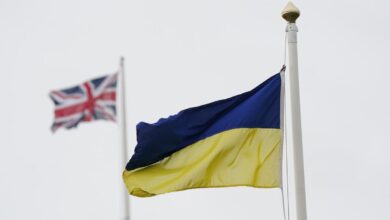BBC director general opens the door to radical overhaul of licence fee

The BBC could turn it back on a flat fee and means test TV licences, with richer households paying more.
The proposal comes as director general Tim Davie warned that the corporation has no “God-given right to exist”, as he laid the groundwork for a radical overhaul of the licence fee, which could include novel funding options.
As he prepares to set out a radical plan for the corporation’s future, Mr Davie said it must not be defensive, complacent or arrogant. “The BBC can only ever be as important and relevant as the positive impact we have on society,” the director general said.
Separately, writing for The Independent on the same day a BBC strategy document is published, the 56-year-old said the institution needs to do more to meet society’s needs as it faces a potential end to the licence fee.
The explosive article opens the door for a wide-reaching overhaul of how the BBC is funded, including a means-tested licence fee, with the annual charge to rise to £169.50 from Monday.
Mr Davie, who has been in charge of the BBC for four years, said it supported and nurtured democracy while warning of a mounting global challenge with hostile countries investing heavily in technology to spread disinformation.
But, with the corporation coming under fire and facing increasing financial pressure, he admitted there have been mistakes, adding they should not be seized upon as “evidence of wholesale institutional failure”.
The BBC has been embroiled in a number of controversies since he took over as director general, including deciding not to call Hamas militants “terrorists”, the taking off air of Gary Lineker last year and an inquiry finding Martin Bashir had breached editorial conduct in obtaining the 1995 interview with Princess Diana.
“For the BBC, it is only right that, as the world changes, the contribution we make to the country should change too,” Mr Davie wrote in his piece for The Independent.
“Our mission will always be to inform, educate and entertain everyone, but we believe we can do more to respond directly to the needs of today’s society and the shared challenges we now face.
“Recently one politician stated that the BBC has no ‘God-given right to exist’. I agree. I know that any sense of complacency, defensiveness or arrogance leaves institutions fatally distanced from those they serve. We can only ever be as important and relevant as the positive impact we have on society.”
The strategy is expected to see a rebuilding of online services, investing in programmes and raising commercial income.
This could include new partnerships with global groups, with the recent deal with Disney over the screening of Doctor Who thought to signal a way forward.
It is also understood more radical options such as a means test will be considered,
Meanwhile, long-running programmes could be cut and further jobs, particularly at TV channels and radio stations, lost.
Mr Davie is under pressure to balance the BBC’s books with it set to receive a below-inflation increase to the £159 licence fee in April after a two-year freeze.
The current licence fee agreement expires at the end of 2027 – and in March, the government appointed a panel to look at alternatives to the finance deal.
Earlier this year, Culture Secretary Lucy Frazer said the corporation “needs to adapt” to the reforms or risk “losing the trust of the audience it relies on”.
Mr Davie wrote: “The BBC will prioritise three clear roles in the years ahead.





